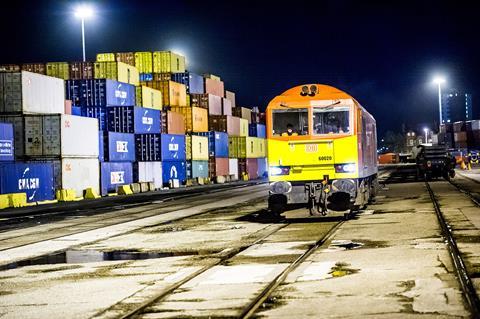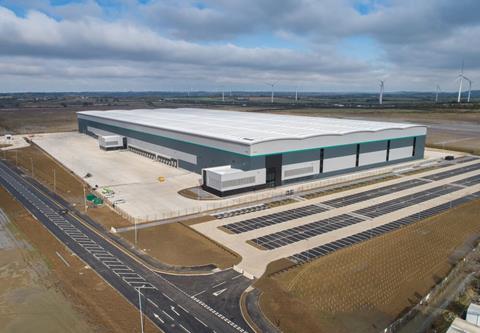
UK: Trade association Logistics UK has stepped up pressure on the government to ensure that the freight sector benefits from capacity released on the conventional network by the opening of the first phases of High Speed 2.
Logistics UK — formerly the Freight Transport Association — says that the sector’s support of HS2 is conditional on the government pledging ‘unequivocal support to grow rail freight’. The association believes the opportunity for freight to use released capacity from HS2 is substantial, creating paths for up to 144 extra freight trains per day, potentially removing 10 944 heavy lorries daily from the road network. However, there is no policy or legal requirement that a proportion of released capacity must be allocated to freight; Logistics UK is urging the government to reconsider this regulatory approach.
The association has produced a report assessing how the freight market could grow on the back of exploiting capacity released on the West Coast Main Line by the opening of phases 1 and 2A of HS2, which would link London and Crewe and are expected to be completed in around 10 years’ time.
Among the challenges highlighted by the report is the shortage of capacity today on key sections of the WCML, notably around Daventry where the existing DIRFT rail freight terminal is expanding and a new Northampton Gateway logistics complex is being developed. It warns that there is almost no scope to enhance capacity on the WCML’s Northampton Loop for freight unless there is a substantial transfer of passenger traffic from the existing main line to HS2.

Logistics UK also urges the government and rail timetable planners to consider capacity for ‘end to end’ freight flows when assessing how best to reallocate space on the network. Under current timetable planning processes, existing capacity for freight traffic can be protected, but there is no scope for the Office of Rail & Road to intervene to ensure extra capacity is dedicated to these services, the report adds.
It concludes by warning that ‘the conventional network is at capacity; there are almost half as many freight trains using the network as there were 15 years ago. It is not an exaggeration to say that HS2 is likely to be the only opportunity this century to generate a substantial increase in capacity for rail freight in the UK.’
‘Logistics UK needs government to secure the future of rail freight in the UK and provide a cast-iron guarantee that freight services will have sufficient access to the released capacity that HS2 will provide’, added Zoe McLernon, Multimodal Policy Manager at Logistics UK.
‘We are concerned that the process to allocate released capacity may favour passenger operators, because it will be run by the incumbent passenger operator, West Coast Partnership, and there is no guarantee that capacity will be provided for freight.’



